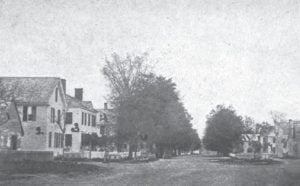The Proprietors of Norwich Vermont
The larger part of the names of the grantees of Norwich are names of Connecticut men then resident in Mansfield and neighboring towns. Captain Hezekiah Johnson, Samuel Slafter, Joseph Storrs, and William Johnson 3rd, are known to have lived in Mansfield; Amos Fellows, James West, Adoniram Grant, and Samuel Cobb were of Tolland; Ebenezar Heath, Captain Abner Barker and William Johnson of Willington, towns adjacent to Mansfield on the north. The last nine names are those of New Hampshire and Massachusetts men, several of them members of the provincial government in the former province. Major Joseph Blanchard was of Dunstable, … Read more

